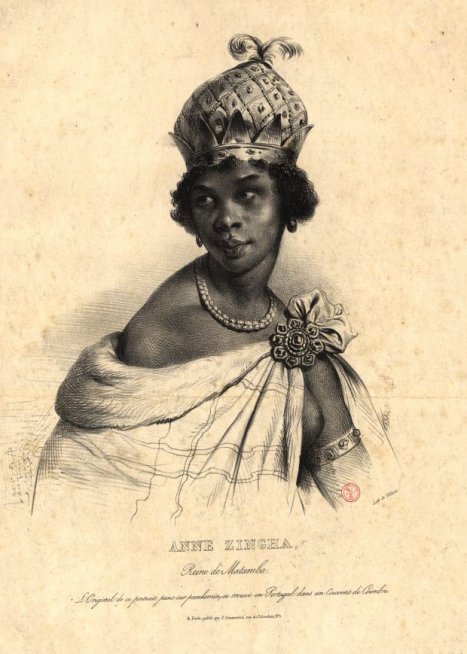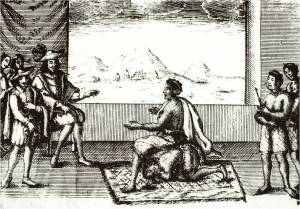“A really strong woman accepts the war she went through and is ennobled by her scars.” Carly Simon, American singer
Elizabeth Tudor, Gloriana, Queen of England, gives her name to an entire age of history.
Renowned for her intelligence, political savvy, and ability lead a nation, she is a staple of women’s history.
While we celebrate the glories of the “Elizabethan Age,” another equally compelling and canny queen lived a continent away.
Her name was Nzinga, queen of Ndongo and her story may be even more fascinating than the Virgin Queen’s.
Nzinga’s story is one of the best documented of any African ruler’s in the centuries before the post-colonial era.
Born into a royal family that ruled over what is now modern Angola, Nzinga was first noted by the Portuguese as they sought to increase their hold over central Africa and its all-important slave trade.
Serving as an envoy for her royal brother, Nzinga’s first encounter with the Europeans showed her mettle early.
According to a well-known legend, Nzinga was not offered a seat when meeting with the Portuguese Governor João Correia de Sousa. Not one to stand, she commanded a servant to kneel. She negotiated from her servant’s back as an equal to the Europeans before her.
After inheriting the kingdom of Ndongo in 1624, she would go on to wage active war against the Portuguese, winning battles, laying siege to their fortresses, and allying herself with the Dutch, Portugal’s rivals.
She issued edicts and wrote letters. She led troops into her sixties.
When she was driven out of her ancestral lands, Nzinga founded the combined state of Ndongo and Matamba. When not sparring with the encroaching slave traders of Europe, Nzinga resettled runaway and former slaves. She survived coup attempts. She traded and built her kingdom. She would live into her eighties.
Today, she is regarded as a leading heroine in Angola. Women are often married near her memorial in Luanda, Angola, the country’s capital, where a street also is named for her.
“They believe that going to the statue and taking pictures there after getting married in a church legitimizes their connection and history to Nzinga,” says Linda Heywood, a professor of African-American Studies at Boston University told Public Radio International in July 2011.
So, why aren’t our daughters learning about this remarkable woman?
An English queen who inspired her kingdom to resist the Spanish Armada is routinely celebrated.
It would only be fitting to honor the Angolan queen who resisted Europe’s quest for conquest in the same way.
And it would be humbling to witness the Thursday and Friday weddings in the shadow of Nzinga, Queen of Andongo.
Sources: Wikipedia.org; “Ana Nzinga: Queen of Ndongo” The Metropolitan Museum of Art; “African Queen” Public Radio International interview with Linda Heywood by Marco Werman, produced by Zuzanna Sitek


